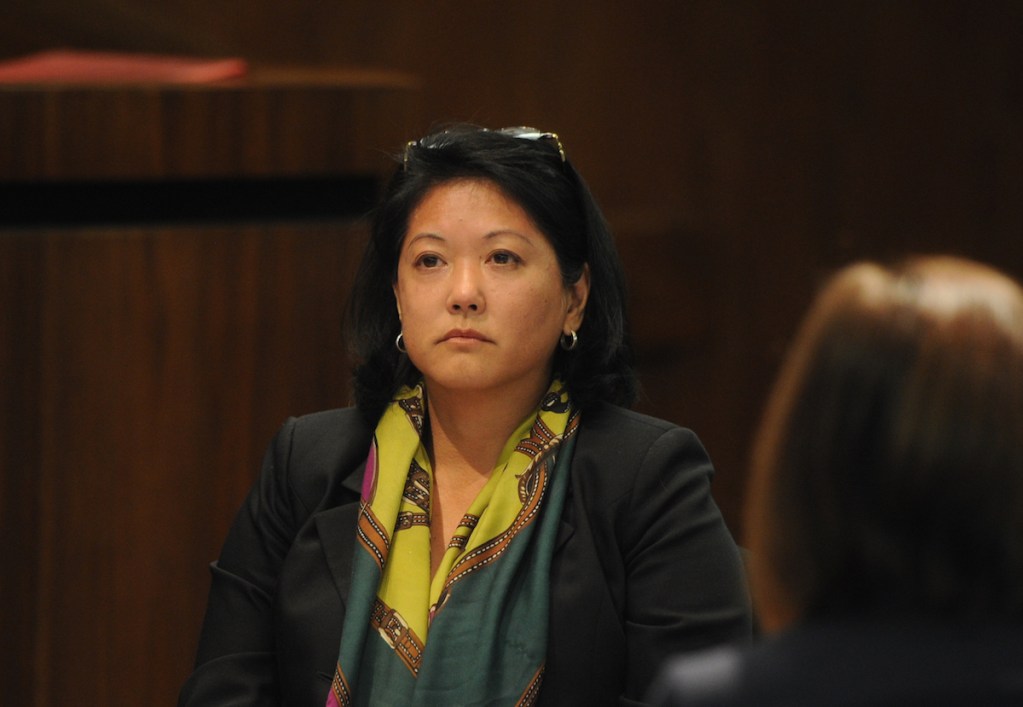Someone who worked for me once asked me, quite innocently and out of the blue, “So, are your parents, like, from China?” I laughed out loud. My last name is Japanese, and the difference between a Japanese and Chinese surname was evident, I thought. The goof-up was so funny that I called my spouse and relayed the story. We both had a hearty chuckle.
This lack of differentiation is not unique. People of Asian descent are often lumped together because evidently there are not enough of us — 5.6 percent percent of the U.S. population — to garner a distinction. And we are often saddled with the “model minority” stereotype — and I am well aware that I perpetuate this to many — but Asians are a heterogeneous group speaking a multitude of languages, with distinct immigration histories and varied educational attainment levels and socio-economic situations. Not everyone is crazy nor rich.
But it made me think. I am the chief executive of a 4,300-employee organization with a $1.2 billion budget. My name is high on the org chart. Yet, a well-meaning, educated, and sincere employee was curious enough to ask me, at work during a meeting, about my ethnicity. So, it dawned on me: Why did he ask, and why did it matter?
I thought of UC Berkeley Professor Ron Takaki’s seminal book Strangers from a Different Shore, which provides the history of Asian Americans — from the struggles of railroad workers to plantation laborers to picture brides, from interment camps to Hmong refugees. My personal history is in that book, which reminds us that no matter how many generations of hyphenated American status, level of education, wealth, or social acceptance, some may always see Asian Pacific Islander Americans as “strangers” in this country. (And you can substitute “Asian Pacific Islander American” with any other group that is not part of the dominant culture that holds power.)
Being seen as a “stranger” is what breeds misunderstanding, separation, anger and hate. Black, brown, and indigenous people know this better than most. Asians too know this — say the name Vincent Chin to anyone of my generation. Yet small acts of intended or unintended microaggressions may be more common than outright violence. That is why the shootings in Georgia are significant. It follows thousands of hate crimes against Asian people in the past year, which reportedly are disproportionately against Asian women.
While not yet confirmed as a hate crime by authorities, the shootings cause more frustration, sadness, and rage, as we add another layer of pain on a cake baked from centuries of bigotry, racism, and violence.
Raising voices at this time is important, particularly for a group that bears a stereotype of being submissive and silent. While there are no reported hate crimes in our county, some will say they are just not reported. I don’t know if that is true or not. I do know that the death of George Floyd has caused a cultural shift in the last year, with more efforts to enhance equity, inclusion, and diversity for everyone in our workplaces and communities. Yes to that. Continuing to express moral outrage for every act of violence based on race or otherness — yes to that.
But in addition, I say let’s also go back to basics: creating belonging and what Dr. King called the “beloved community” in our everyday actions. That’s what makes this community unique, where everyone knows each other or is within six degrees of separation. Only in Santa Barbara County can two people who disagree, and maybe even dislike each other, find commonality over a tri-tip sandwich.
As we seek progress on rectifying the large, hairy systemic issues, we can continue our individual, everyday acts of awareness, kindness, and belonging. We can look at ties that bind us to make sure we aren’t inadvertently keeping some folks out. We can strive to remove “the other,” so no one is felt a stranger.
My grandparents — from Japan (not China) — would have liked that.
Mona Miyasato is chief executive for the County of Santa Barbara, but she writes here as a private resident and expresses views that are her own and not necessarily those of her employer.

